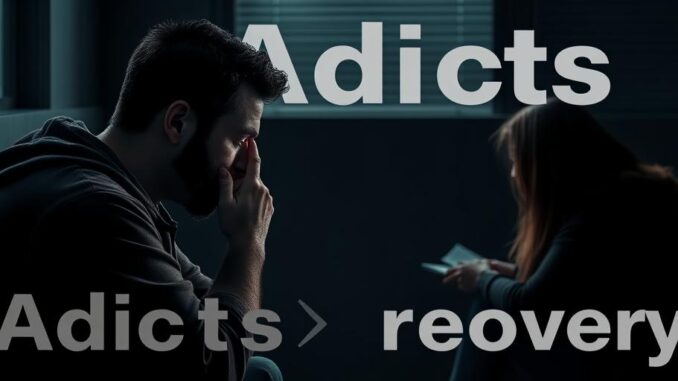
Summary
This article guides recovering addicts through “playing the tape through,” a visualization technique to combat cravings. It involves pausing at the urge, rewinding to past consequences, fast-forwarding to potential relapse outcomes, and then visualizing a positive future free from addiction. By contrasting these scenarios, individuals reinforce their commitment to recovery.
** Main Story**
Okay, so you’re in recovery – congrats, that’s huge! But let’s be real, cravings are a beast. There’s this technique called ‘playing the tape through,’ and honestly, it’s been a lifesaver for me and others I know. It’s about facing those urges head-on, and really, truly, visualizing what could happen if you give in. Think of it as your own personal ‘what if’ simulator, but for sobriety. Here’s how to actually do it.
Step 1: Hit Pause – Like, Immediately
First things first, you gotta recognize the craving when it hits. It’s like, bam, there it is! And the absolute most important thing? Immediately hit that mental pause button. Don’t even give yourself a chance to rationalize. It’s like stopping a runaway train before it picks up speed. Seriously, no debate, no bargaining. Just… pause.
Think of it as creating a little buffer zone, a space where you can actually think before reacting. That impulse is strong, I know, but you can do this. I remember one time, I was driving home, and the urge just slammed into me out of nowhere. I literally pulled over, took a few deep breaths, and just sat there for a minute. That pause made all the difference.
Step 2: Rewind to the Painful Past
Alright, now that you’ve paused, it’s time for a little trip down memory lane… the unpleasant kind. Rewind back to when you were actively using. Don’t sugarcoat it. Remember the rock bottom moments, the physical pain, the shame, the people you hurt. What did that hangover actually feel like? Bring it all back, vividly.
But here’s the catch: watch out for “euphoric recall.” It’s this sneaky thing where your brain tries to only remember the good times, the high points. Don’t let it fool you. Challenge those memories. Remind yourself of the crushing lows that always followed. Seriously, it’s easy to forget the bad stuff, but you can’t afford to. It’s the whole reason you’re fighting this battle right now.
Step 3: Fast Forward to the Potential Relapse Disaster
Okay, this is where it gets real. You’re going to “fast forward” into the future, but not the kind you are planning. Play out, in your mind, exactly what is going to happen if you give in to the craving right now. What happens immediately? What are the risks, the consequences? Think about it; will you face health problems, legal troubles, and the utter disappointment of loved ones?
Don’t just stop there, keep playing the tape further into the future. What’s the long-term damage? Will you destroy everything you’ve worked so hard for? Relationships, job, health? Paint the most realistic, and, frankly, awful picture you can. This isn’t about being dramatic; it’s about being honest with yourself. No matter how much you want to think ‘It’ll be different this time’, it won’t.
Step 4: Visualize the Awesome, Sober Future
Right, now for the good part. Time to fast forward again, but this time, you’re resisting the craving. You’re staying strong. Picture it! What does that future look like? Think of the improvements in your mental and physical well-being, think about the strength and stability of your relationships, how happy your family will be.
Most importantly, consider how you’ll feel about yourself. That sense of pride and accomplishment, that’s what you’re fighting for. Visualise the life you are building, and how those cravings won’t get to you! What is it going to be like when you achieve your goals? Honestly, it’s an amazing feeling, like climbing a mountain and taking in the view from the top. You deserve that.
This ‘playing the tape through’ thing? It isn’t just a way to handle cravings; it’s a way to consistently and consciously reinforce your commitment to recovery. It’s like a mental workout for your sobriety. By constantly comparing the horrifying potential of relapse with the amazing possibilities of recovery, you’re strengthening your resolve and building resilience, and, hopefully, I might add, you’ll be able to deal with these challenges with so much more confidence. It helped me, and I know it can help you.


Be the first to comment